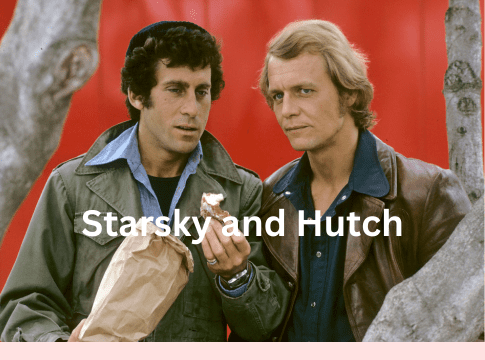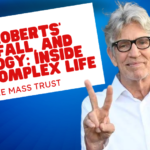Soul, who played “Hutch” grew up in Sioux Falls, went to college at Augustana and performed in North Dakota before hitting it big as a singer and actor.
Starsky & Hutch’ Star David Soul Dies at 80: A Tribute to the Iconic Actor and Performer
At the age of 80, David Soul, who portrayed “Hutch” on ABC’s “Starsky & Hutch” from 1975 to 1979, departed from this life. He performed throughout North Dakota and attended Augustana College before becoming well-known as a singer and performer in Sioux Falls.
David Soul became well-known as a TV police officer in the 1970s when his popularity peaked. Before securing the renowned position of Kenneth “Hutch” Hutchinson in the television series “Starsky & Hutch” in the 1970s, he was first recognized in North Dakota as the cowboy singer in the Medora Musical with golden hair and blue eyes.
Helen Snell, his wife, announced his death from their London residence.
“Today, in the loving presence of his family, David Soul, beloved husband, father, grandpa, and brother, departed from this world after a valiant fight. He was a wonderful friend, actor, singer, storyteller, and creative artist who gave the world many amazing things. Many will be the lives he touched, and they will remember his smile, laughter, and zest for life.”
Soul gained extensive knowledge about his craft while growing up in South Dakota, going to school in Minnesota, and doing performances in North Dakota.
David Soul: From Childhood Talents to Iconic 1970s TV Police Officer
On August 28, 1943, in Chicago, David Soul, the son of a pastor, was born to June (Nelson) and Richard Solberg. In 1945, Richard—a well-known Lutheran scholar, teacher, and pastor—moved his family to Sioux Falls, where he was employed as an Augustana College history and political science professor. Since the Second World War was coming to a close, Richard was also employed.
David Soul showcased his skills in acting, athletics, and singing while participating in church and school events in Sioux Falls. He received praise from the local media for his leprechaun act while he was in the fourth grade. David’s acting prowess was noted by Arl Mundy, the theater director of Augustana College.
Did this childlike-looking high school senior really grow up to be a hot TV police officer in the 1970s?

Mundy was up in Epping, North Dakota, and had experience in theater and music, including steel and graphing, before accepting the position of director at Augustana. In addition, he directed Sioux Falls community theater plays. David was nine years old in 1952 when Mundy persuaded him to play Morton Stockman in the play “An Enemy of the People” by Henrik Ibsen.
Richard Solberg oversaw refugee aid operations in West Berlin as the Lutheran World Federation’s senior representative from 1953 to 1956. The family moved to West Germany as a result of this job, and David decided he wanted to study German.
The Solbergs moved back to Sioux Falls in 1956. David often participated in musical performances at church and school and played the piano. At Washington High School, he gained a lot of popularity by acting in school plays, participating in talent events, and serving on the student council.
Along with being the treasurer of the German club and president of the journalism club, he also penned plays for the annual book. David participated in both the American Legion baseball squad and the high school track team.
He was reportedly offered a professional baseball contract by the Chicago White Sox organization due to his exceptional abilities as a baseball player. Following his high school graduation in 1961, David attended Augustana College, where he regularly appeared in Arl Mundy’s plays. In 1962, he was chosen as the South Dakota Lutheran League’s president after being involved in the Lutheran Campus Ministry.
From México to Medora David made the decision to go to Mexico City with his family after his two years of college. His father had been offered a position at the American University, a school that prepares students for careers in politics. David enrolled at the university and rapidly picked up Spanish. In addition, he picked up the guitar and started playing some well-known folk tunes from Mexico in small groups.
David lived in Mexico City for a year before coming back to the US to study political science and history at the University of Minnesota. He got a part-time work at the 10 O’Clock Scholar Coffee House on campus, where he played the guitar and sang, to help pay for school.
David was excited to learn that Bismarck businessman Herald Schaeffer was supporting a summer production of “Teddy Roosevelt Rides Again: A Medora Musical,” which would take place in an outdoor amphitheater, since he had a knack for singing and a keen interest in politics and history. David was successful in his audition for a part in the first Medora musical, “The Medora Kids” (now The Burning Hills Singers).
“Starsky and Hutch” comes next. Following the conclusion of “Starsky and Hutch” in 1979, Soul went on to pursue a career in acting, playing Roy Chappman in the 1984 TV series “The Yellow Rose.”
Along with performing, Soul started directing and producing a variety of projects, devoting a lot of his time to the advancement of social and environmental causes. He moved to London in 1995 after receiving an invitation to perform in the play “Catch Me If You Can” in the United Kingdom. He was awarded an honorary degree by the University of Hertfordshire in 2004.
He obtained British citizenship in 2004.
Starsky and Hutch
Soul was a celebrity in the United Kingdom and the rest of Europe, even drawing admirers from the royal family, despite his popularity in the United States.
When David Soul appeared in the 2004 film adaptation of “Starsky & Hutch,” costarring as Glaser and Owen Wilson with Ben Stiller, he attracted the attention of a new audience.
However, there were also difficult moments. Soul has five marriages under his belt, all of which had problems with violence and drinking. These issues were brought to light by the media. Soul was transparent about his struggles with anger management and being misinterpreted. He worked hard to change and became “much more vigilant and much less despairing.”
He started working with Snell in 2002.
Discover more from The Mass Trust
Subscribe to get the latest posts sent to your email.











